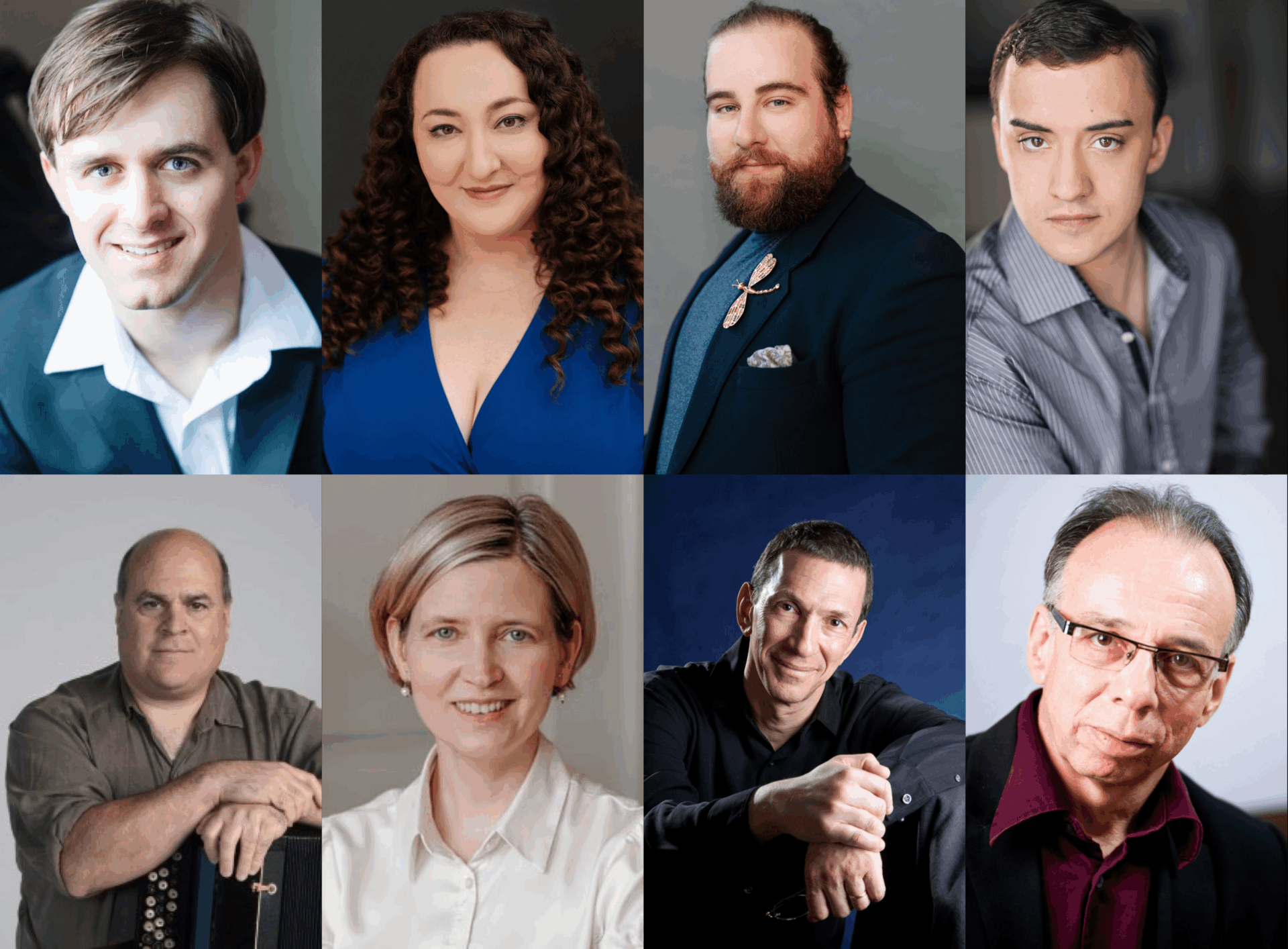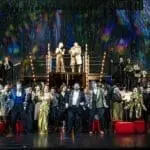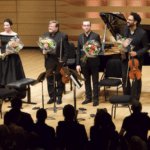The history of this opera is curious to say the least. I had a conversation this week with Ashkenaz Festival’s Artistic Director Eric Stein about the genesis of the work. Through him and through other published materials, including an excellent article by Canadian writer Paula Citron, I was able to gain insight into the historical twists and turns of this work, even though some crucial information remains unanswered. What we do know is that 95 years had passed between its premiere and its revival.
Composed by Henekh Kon with a libretto by Moishe Broderzon, the opera premiered in Warsaw in 1924, with piano accompaniment, and it was never performed again. Five years ago, the score came to light after it was acquired by Yale University in an auction. German musicologist Dr. Diana Matut subsequently gained access to the score, but unfortunately, sixteen crucial pages were missing. Having received funding to restore the work, Dr. Matut engaged American composer Joshua Horowitz, who orchestrated the it based on existing instrumentation instructions by Kon. He also composed new music to fill in the missing section, set to new text by Toronto-based Yiddish scholar Michael Wex.
The Triangle Orchestra performs Henech Kon's Yiddish opera, "Bas-Sheve" from Eyal Davidovitch on Vimeo. *Not from this performance—gives further insight into the work
The restored Bas-Sheve had its world premiere in the Yiddish Summer Festival in Weimar, Germany in 2019, with a subsequent performance in Lodz, Poland. The performance at Glenn Gould Studio on August 3 was a concert performance, sung in Yiddish, with surtitles and visual projections. With four principals, a 21-member orchestra UCLA Philharmonia, plus a 12-member chorus, the Glenn Gould stage was comfortably full. The work was approximately one hour, followed by an extended Q&A with members of the creative team.
Musically it was notably traditional, melodically inspired, with much of it a reflection of Eastern European folk tradition, composed in a minor key, giving it a sense of poignancy. Considering that Bas Sheve was composed at the height of the Second Viennese School, there’s a curious absence of the angular and dissonant Modernist style typical of that period. Instead, we got pretty tunes, formal arias, plus long stretches of soliloquies by the principals.
The story comes straight out of the Old Testament. Dovid (King David) rapes Bas Sheve, who becomes pregnant. To conceal his evil deed, Dovid has Urial, Bas Sheve’s husband, killed in battle. Dovid marries Bas Sheve. His action has angered the Lord, who sends Nathan the Prophet to reproach him. Dovid repents, and the child dies to atone for Dovid’s sin. Not a pretty tale to be sure, yet inexplicably, there are humorous patches in the text.
Unlike a typical opera with lots of stage action, Bas-Sheve is essentially a series of narratives sung by the four principals about the story, with very little actually happening onstage. In that sense, it’s not unlike an oratorio. Perhaps this explains why the work was never orchestrated by Kon, and never received a staged performance. It would be highly unlikely that the missing 16 pages would have altered the style in any way. Kudos to Horowitz for composing the missing sections based on (but not copying) the musical style of Kon. It was a seamless effort, yet distinctive enough to the ear.
The performance featured a fine quartet of soloists. In the title role, dramatic soprano Jaclyn Grossman sang with bright, focused tone. She was well matched by the lyric baritone of Jonah Spungin (King David), a current member of the Canadian Opera Company Ensemble. As Nathan, tenor Marcel d’Entremont offered an impressively big sound, with plenty of fire and brimstone—suitably so, after all Nathan was a prophet! Geoffrey Schellenberg acquitted himself well in the rather thankless role of the Messenger.
One would have preferred a bigger sound from the 12-member chorus given its importance in this work, but it delivered an honourable performance. Conductor Neal Stulberg led the 21-member UCLA Philharmonic in a lyrical reading of the score. Final word? It was an enjoyable concert performance, but it keeps me wondering what it would have been liked fully staged. In the final analysis, Bas-Sheve strikes me as a flawed work, but still worth hearing for its historical importance.
Opera Canada depends on the generous contributions of its supporters to bring readers outstanding, in-depth coverage of opera in Canada and beyond. Please consider subscribing or donating today.















